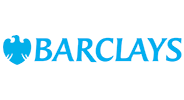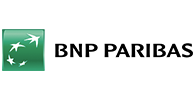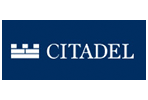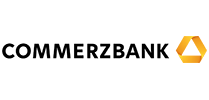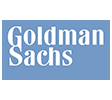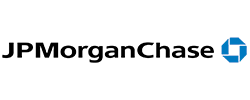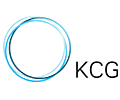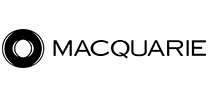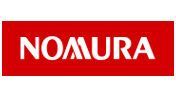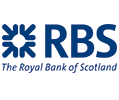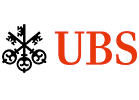The Future of FX Trading: Embracing Digital Transformation
The foreign exchange (FX) market, the world’s largest and most liquid financial market, is undergoing a significant transformation. With over $7.5 trillion traded daily, digital technologies like AI, blockchain, and advanced analytics are reshaping the FX market’s future. But what does this digital shift mean for traders, brokers, and investors? More importantly, how can market participants stay ahead in this rapidly evolving environment?
The Rise of Digital Technologies in Forex Trading
Digital transformation is more than just a trend—it’s fundamentally changing every aspect of forex trading. Technologies like artificial intelligence (AI) are powering smarter trading algorithms that can analyse market data in real time, detect patterns, and predict market movements with remarkable accuracy. Similarly, blockchain technology and smart contracts are revolutionising the forex trading platform by making settlement processes faster, reducing costs, and enhancing transaction transparency.
An ECN trading platform utilising blockchain enables direct peer-to-peer exchanges, significantly speeding up settlement times, eliminating the need for multiple intermediaries, and reducing costs for all parties involved. Smart contracts ensure trades are executed automatically based on predefined conditions, minimising errors and preventing fraud.
AI-driven platforms can analyse vast volumes of data, identify trends, and make informed trading decisions. By interpreting market information, news, social media sentiment, and analytics, these technologies help formulate trading strategies with valuable insights and accurate predictions.
The Benefits of Digital Transformation in Forex Trading
- Improved Order Execution: Digital transformation enhances order execution quality, ensuring trades are executed at the best available prices. For example, with Direct Market Access (DMA), traders can interact directly with the market without intermediaries, reducing latency and slippage. This is especially true for those looking for the lowest-cost platform to optimise their trading.
- Lower Trading Costs: Leveraging technology reduces operational costs and lowers barriers to entry for both retail and institutional clients. This democratises access to the forex market, creating a more inclusive environment for all participants. A best ECN broker will use these tools to provide raw spreads and low commissions, making trading more accessible.
- Greater Transparency: The integration of blockchain is making FX trading more transparent. Blockchain provides a tamper-proof record of all transactions, ensuring integrity and trust among market participants—crucial for institutional clients needing high accountability.
- Enhanced Risk Management: Digital tools equip traders with advanced risk management capabilities, like real-time analytics and automated alerts, to effectively monitor and manage market exposure. Predictive algorithms allow traders to mitigate risks and adjust strategies in response to market fluctuations, fostering more stable trading outcomes.
- Increased Agility and Flexibility: Cloud-based platforms like MetaTrader 4 (MT4) allow for faster decision-making and agile trading strategies. With MT4 download for PC, traders can access cutting-edge tools to execute trades on the go and adapt quickly to market changes, ensuring they remain competitive.
- Access to Forex Bonuses and Rewards: Many brokers offer a forex demo account and additional incentives, such as a forex bonus, to encourage trading activity. These tools can be essential for new traders looking to learn and practice without financial risk, while also providing experienced traders with extra benefits.
The Challenges Ahead: Navigating the Digital Frontier
While the benefits of digital transformation are clear, there are several challenges to consider:
- Data Privacy and Protection: The increased reliance on digital tools brings a greater responsibility for safeguarding sensitive client information. FX brokers must enforce stringent data protection protocols to prevent breaches and maintain client trust.
- Regulatory Compliance: Navigating complex regulations can be daunting. Brokers must stay updated on new regulations and ensure compliance with local and international standards to operate effectively in a digital environment.
- Talent Shortage: Embracing digital transformation demands a workforce skilled in new technologies like AI, data analytics, and blockchain. This requires brokers to invest in continuous training and development.
- Integration with Legacy Systems: Many brokers rely on outdated systems that are not fully compatible with new digital tools. The challenge is to integrate these systems seamlessly without disrupting operations or compromising data integrity.
- Infrastructure Demands: Effective digital transformation requires robust infrastructure. Firms need to invest in high-quality servers, secure networks, and reliable platforms to support increased digital activity. For instance, choosing a top forex trading platform can be crucial for stability and performance.
- Managing Forex Leverage: With digital platforms, traders have access to higher levels of forex leverage, which, while increasing potential returns, also amplifies risk. Proper management strategies are essential to balance these risks effectively.
How FXCG is Leading the Charge in Digital Transformation
At FXCG, we’re not just adapting to the future of FX trading; we’re shaping it. Our commitment to digital innovation is reflected in our continuous efforts to integrate the latest technologies into our services. With a focus on providing 100% DMA, we ensure lower trading costs and superior order execution, enabling our clients to thrive in the digital era.
Preparing for the Future of Forex Trading
The future of forex trading is digital, and the time to embrace this transformation is now. By investing in cutting-edge technology and fostering a culture of continuous innovation, market participants can stay ahead of the curve.
At FXCG, we are dedicated to being an extension of your team, providing the expertise and tools needed to navigate this digital revolution. Are you ready to be a part of this future?
before: FXCG Expiring Futures CFD Contracts Schedule 2024-09
next: Why Direct Market Access (DMA) is Crucial for Modern FX Trading

